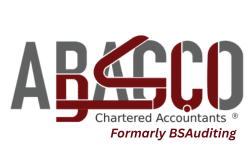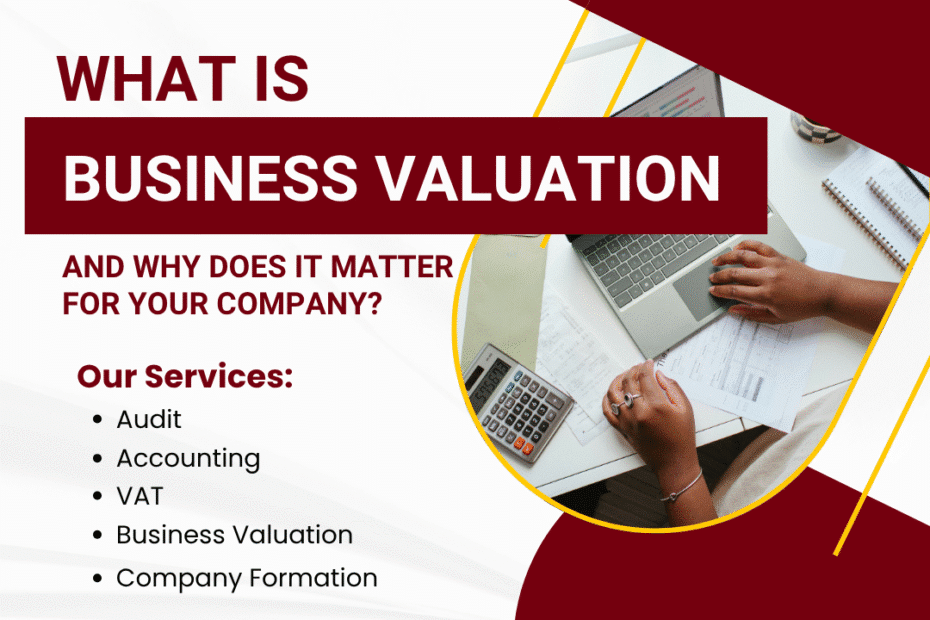As a business owner, having knowledge on business valuation is key. Business valuation, a process that estimates the quantifiable economic value of a business, or of an owner’s share in a business, is important for business control, appraisal, venture capital financing, strategic planning, mergers and acquisitions, exit planning, and risk management.
This article intends to make you aware of the major components of business valuation such as, what is business valuation, methods of business valuation, process of business valuation, major benefits, and business valuation in the form of common questions and answers.
Why Business Valuation Matters:
Strategic Decision Making & Growth Planning
A business valuation informs you of your company’s positioning compared to competitors and guides possible improvements. Furthermore, operations, cash flow, and assets along with intangible strengths enhance and influence valuation. This enhances valuation’s distinctive function as a benchmarking tool for growth.
Attracting Investors and Securing Financing
Credible investors or lenders will analyze business valuations to gauge risk, growth potential, and a fair price for investment. Valuation tends to build and enhance trust thus serving as a negotiation booster in deals.
Exit Planning, Mergers & Acquisitions
Exit planning requires a company’s accurate valuation to package a fair price, aiding in seamless negotiations and guaranteeing trust within the deal structure. Mergers and acquisitions also benefit greatly while ensuring equal pricing and seamless negotiations.
Legal, Taxation & Estate Planning
Business valuations are necessary for estate transfers, gift taxation, divorce, and shareholding disputes. Other instances include structuring Employee Stock Ownership Plans, or, ESOPs.
Risk Mitigation & Insurance Planning
Yearly business valuations strategically position your company to remediate potential blindspots while highlighting areas of possible anticipating downturns. Such high-quality insurance paired with buy sell agreements guarantee a fair and sensible valuation.
How Is Business Valuation Conducted?
Business valuation is a practical approach in finance built on an analysis, forecasting, and benchmarks. Here is a summary of different valuation methods applied in valuation.
Asset Based Method.
Determines net worth by subtracting liabilities from the fair value of both tangible and intangible assets. This approach is commonly applied in a liquidation scenario as a lower value.
Income Based Method (Discounted Cash Flow)
A cash flow valuation method. Projects future free cash flows, adjusting them to an appropriate risk and cost of capital for the firm to derive a present value. This approach is best for firms with stable or predictable cash flows.
Market Based Method (Multiples or Comparable Transactions)
This method focuses on valuation based on comparison with other value, thus price as a function of competing assets. It may appropriate to apply multiple valuation methods of EV/EBITDA or P/E or revenue multiples during comparison.
Business Valuation Methods Compared
| Valuation Method | Description | Best For |
| Asset‑Based | Assets minus liabilities (book value or fair value) | Capital‑intensive or low‑profit businesses |
| Discounted Cash Flow (DCF) | Projects future cash flows, discounts to present value based on risk-adjusted rate | Growing companies or startups |
| Market / Comparable | Use valuation multiples from similar recent transactions to estimate value | Industries with ample precedent transactions |
| Combination Approach | Uses two or more methods to verify and triangulate value | Most mid‑size businesses |
Top Benefits of Business Valuation
Here are the main benefits of having a formal business valuation done:
- Obtaining accurate and dependable business intelligence provides deeper insights into your business’s value, far surpassing intuition and superficial calculations.
- Obtaining funds, purchasing another business, or selling your own business enhances your negotiation power.
- Measurement of benchmarking and performance tracking over regular periods assists in monitoring the growth of your business.
- Valuation assists in the compliance and governance of tax, legal, and regulatory frameworks.
- Facilitates equitable transfers and estate planning, thus avoiding disguised discounts, and enabling better planning of exits and succession.
When Should You Do a Business Valuation?
-
Before Seeking Investment or Financing
Improves confidence from investors and portrays growth potential. Clarifies equity and ownership dilution post funding round clarifies share and credit terms setting.
-
When Planning a Sale, Merger, or Acquisition
Prepares one for negotiating from a position of strength. Helping to better structure the deal improves posturing ensuring retained value, thus avoiding underpaid offers.
-
For Annual Internal Reviews
Internal reviews assist the firm in identifying key areas of strength and weaknesses which are critical for business growth.
Doing regular valuations allows you to assess performance metrics against set benchmarks over a given period. This practice also uncovers opportunities to enhance value through process improvement or asset optimization.
-
Business or Personal Transitions—Retirement, succession, partner exit, or legal interaction.
Business, personal, or ownership disputes are made easier through clear business valuations. Stakeholder disagreements are resolved efficiently, eliminating disputes over compensation. This simplifies the legal or planning query regarding ownership changes.
-
Estate or Insurance Planning—Determine coverage or assess potential tax ramifications.
Ensure equitable distribution as well as eliminate the potential tax surprises. Life insurance policies or buy-sell agreements can also be aligned to the business value which was previously determined during valuation.
Questions and Answers for Business Valuation
Q: What is business valuation?
A: Business valuation is estimating the fair market value of a business in a systematic way and can include the whole business or a single ownership portion using financial documents, tangible and intangible business assets, earned revenues, and other market information.
Q: Why is business valuation important?
A: Business valuation is important for strategic business decisions such as funding, mergers, and exit planning as it helps companies understand their true value.
Q: How often should a business valuation be made?
A: Annual and bi-annual business valuation is a good practice for tracking progress. Always update valuation during major company events such as financing, sale, or partnership changes.
Q: What is the best valuation method?
A: Asset based, income based with Discounted Cash Flow (DCF), and market based approaches differ in their applications. A combination of multiple approaches is often the best answer.
Q: Can a small business benefit from business valuation?
A: Business valuation acts as a powerful tool and a tool for growth, investment, sale, loan, or in succession planning for small businesses.
Q: Who should be responsible for business valuation?
A: A business valuation can be better entrusted with a certified professional, for example a CBV, CVA, or CPA with a valuation advisory background.
Improving Your Business Value Over Time
For better business valuation, follow these guidelines:
- Giving attention to business finances and cleaning up the balance sheets will go a long way in improving a business’s valuation.
- Clients and contracts shouldn’t be the sole focus of a business, as over reliance on a singular source of revenue is damaging.
- Trademarks, IP, customer loyalty, and business systems are to be documented in order to build elusive assets, known as intangible assets.
- Strengthened strategic management, long-term and short-term operations, business contracts, and value sustainability planning helps build enduring assets.
Having better value assessment allows businesses to better manage their transitions, secure better investments, and optimally negotiate during a sale.
Conclusion:
A business valuation is not just a set number, and businesses should rethink their valuation, as this number can be a gainful asset. Targeting value estimation, business balance sheets, or planning business finances should be backed with valuation assessment, as this will ensure accurate number-based decisions can be made. Applying methods throughout this blog can enable precise and intricate laws that govern a business’s value to be applied.


